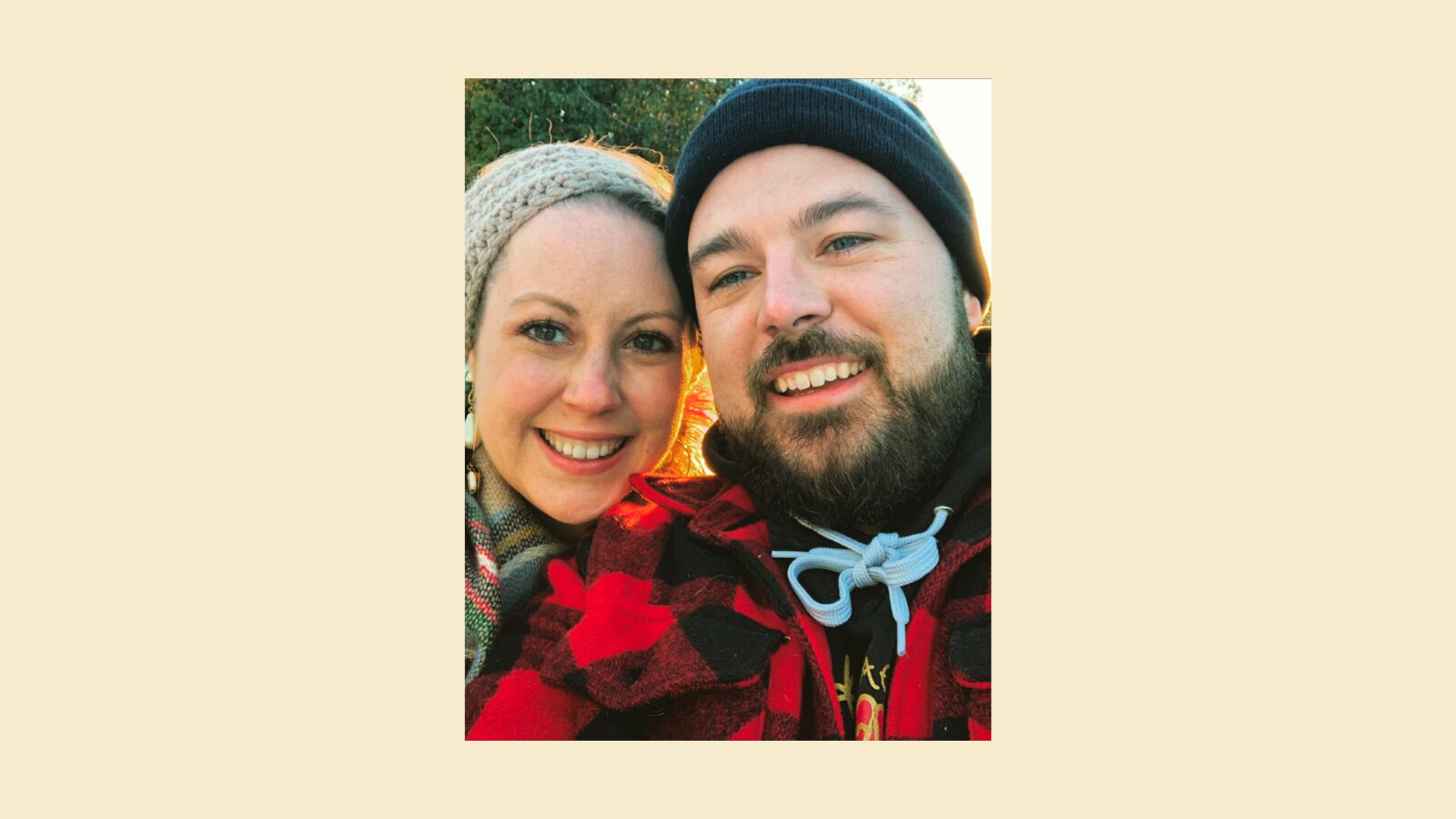Caregivers Can Be Advocates Too
5 MINS to read

When my late wife, Samantha, was re-diagnosed with breast cancer at 26, our lives changed in ways we could never have imagined. This time, it was metastatic. And it wasn’t just the obvious shock of the diagnosis or the grueling treatments that followed — it was the realization that this disease was not just a battle for survival but also a fight for visibility, for research, and for hope. When Sam left us in 2021, just shy of her 31st birthday, I admittedly lost hope.
If you knew Sam, you knew she was not one to sit quietly. We frequently laughed about the fact that everyone knew exactly how Sam felt about everything, all the time. She was true to herself. As she navigated the complexities and challenges of living with MBC, she found strength in advocating for others and sharing that truth. She believed that her story could be part of a larger one and a catalyst for change. Samantha founded Turning the Page on Cancer as a way to bring attention to the unique struggles of those living with MBC, to raise funds for Rethink’s MBC Fund, and to build a community that could offer support and solidarity.
Watching Samantha advocate for change, even in her most difficult moments, was both inspiring and heartbreaking. As her caregiver, I saw firsthand the gaps in care, the lack of understanding, and the overwhelming need for research and policy change. I also saw the incrediblepower that came from sharing her story and turning her pain into purpose. In some ways it was this power that motivated me to continue her work after she passed away. Carrying the torch that Samantha lit is a responsibility I never imagined I would have, but it’s one I take on with deep commitment and love.
What drives me now is the knowledge that Samantha’s fight was not just for herself, but for everyone living with MBC. When I saw how hard Sam worked on her advocacy campaigns, and how little support she received, I cynically asked her why she was doing this with the little time she had left. She was putting every last morsel of energy into furiously writing emails to potential supporters, advocating for change, fully knowing that this work would never benefit her. This selflessness was a call to action for me — a call that I now try my best to answer by pushing for more research, easier access to potential life-extending drugs, better and more equitable care, and greater awareness.
As a caregiver, it can be challenging to find your place within the world of advocacy. I have felt as if I was stealing Sam’s voice, or taking space from others who are in the midst of their own experience with MBC. However, I came to learn just how much my advocacy mattered when Sam could no longer advocate on her own behalf. I have had the opportunity to sit in rooms with decision-makers and share Samantha’s experience with the hope and trust that it will, it does, make a difference.
The work we do through Turning the Page on Cancer is about more than raising funds or hosting events — it’s about challenging the status quo. That was always Samantha’s goal at the core. It’s about demanding that the medical community, policymakers, and society at large pay attention to the realities of living with MBC. It’s about refusing to accept that this disease should be a death sentence.
In Samantha’s memory, we continue to push for big changes within the MBC community. We advocate for more inclusive research that addresses the needs of those living with MBC, for healthcare policies that prioritize patient-centered care, and for a greater understanding of the emotional and psychological toll this disease takes on patients and their loved ones.
This journey hasn’t been easy. There are days when the weight of this work feels too heavy; when the loss of Samantha feels too great. But on those days, I remindmyself of the courage and determination that Samantha showed every day. I remind myself that this work is not just about carrying on her legacy — it’s about making real, lasting change in the lives of those who are facing the realities of metastatic breast cancer. I am reminded by my memories of Samantha how important it is for me to be an ally, to be an advocate. This is crucial work, and it cannot be left to those living with MBC alone. — Jeff Mitchell
Jeff Mitchell • (he/him) • Business Development Manager • Jeff writes and advocates on behalf of his late wife, Samantha, who passed July 4th, 2021 from Metastatic Breast Cancer. He is the director of the non-profit organization, Turning the Page on Cancer. In his free time, Jeff enjoys snuggling with his pup Maverick, gardening, and woodworking.

Rethink is honoured to be the guest editor for Wildfire Magazine’s annual Metastatic Breast Cancer issue focusing on Advocacy.
This piece has been republished with permission from WILDFIRE Magazine, the “MBC Advocacy” issue issue, published originally October 19, 2024. More information available at wildfirecommunity.org
WILDFIRE Magazine is the only magazine for young women survivors and fighters of breast cancer under 45 years old. Headquartered in Santa Cruz, California, WILDFIRE is a beautiful, story-based bi-monthly magazine published on different themes relevant to young women survivors, from stage 0 to stage IV. Beautiful and ad-free! Visit wildfirecommunity.org for more info.